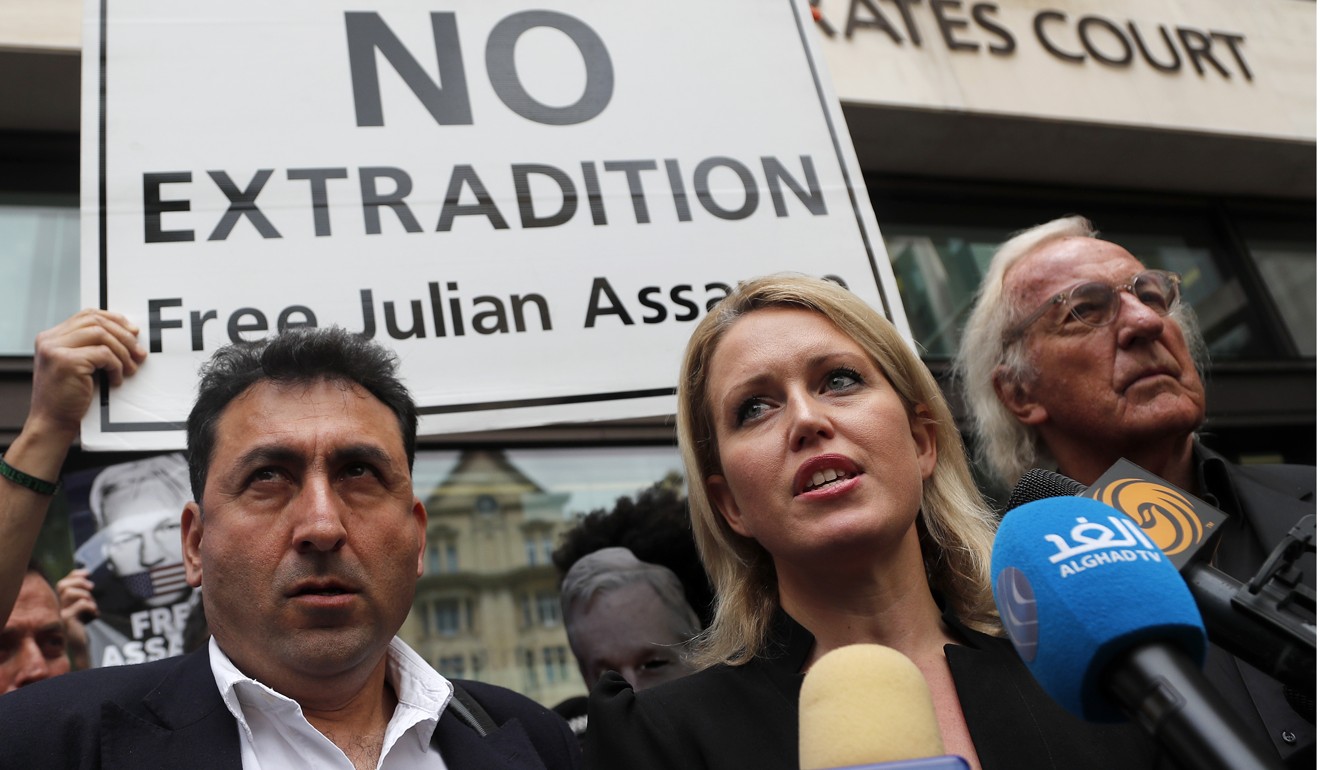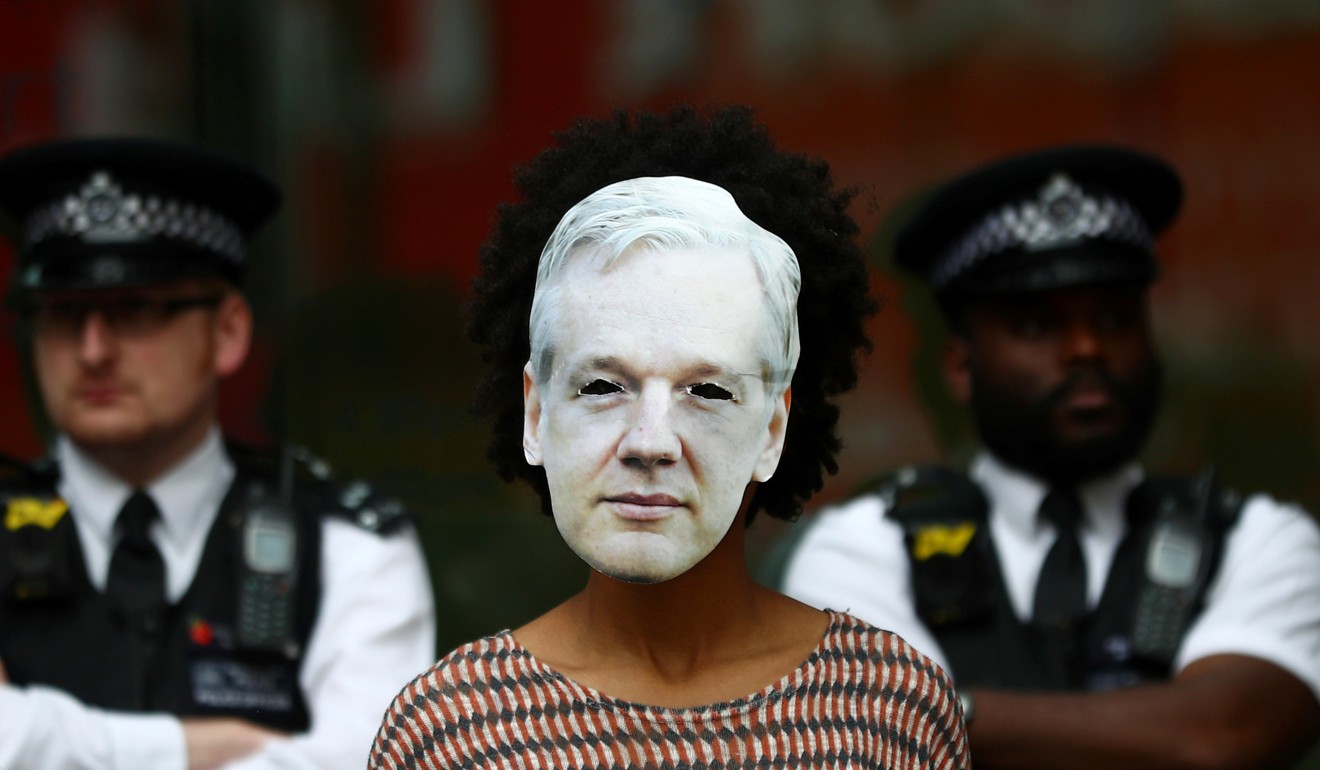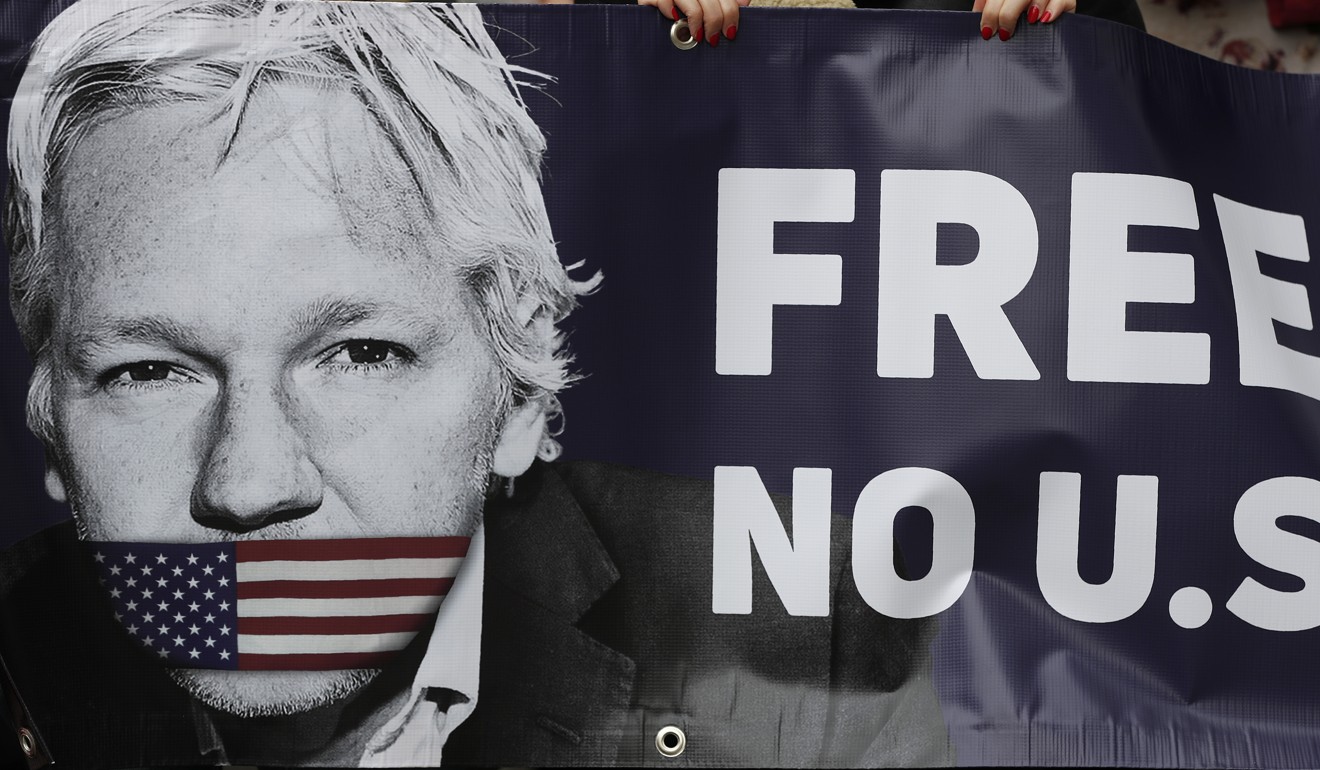
UK court sets February 2020 for WikiLeaks founder Julian Assange’s US extradition hearing
- Assange is accused by American authorities of 18 charges, including conspiring to hack US government computers and violating an espionage law
- He appeared by video link for the short hearing at Westminster Magistrates’ Court

Julian Assange’s full extradition hearing will begin in February, a British judge ruled on Friday, with the WikiLeaks founder wanted in the United States on espionage charges.
Assange is accused by American authorities of 18 charges, including conspiring to hack US government computers and violating an espionage law.
In his first court appearance since being sensationally dragged out of the Ecuadorean embassy in London in April, Assange told the court: “175 years of my life is effectively at stake.”
Speaking via video-link from the top-security Belmarsh prison in southeast London, and sporting a scraggly white beard, he added: “WikiLeaks is nothing but a publisher.”
Washington submitted a formal extradition request to Britain after Quito terminated the 47-year-old Australian’s seven-year asylum stay.
He is currently serving a 50-week prison sentence for violating bail conditions by fleeing to the embassy in 2012 when he was wanted on accusations of sexual assault in Sweden.

England’s Chief Magistrate Emma Arbuthnot ordered a full extradition hearing to begin on February 25, expected to last for five days.
As Ben Brandon, the lawyer representing Washington, ran through a summary of the accusations against him, including that he had cracked a US defence network password, Assange said: “I did not break any password whatsoever”.
Mark Summers, Assange’s lawyer, told the court there were a “multiplicity of profound issues” concerning his extradition.
“We say it represents an outrageous and full-frontal assault on journalistic rights,” he added.
Washington says Assange violated the Espionage Act by releasing a vast trove of classified military and diplomatic files in 2010 about US bombing campaigns in Afghanistan and Iraq.

The initial revelations about civilian casualties and embarrassing statements made by US officials about foreign leaders were published in coordination with newspapers such as The New York Times and The Guardian.
Those stories carefully redacted the names and personal details of US operatives and local informants whose lives could have been imperilled by their identities’ release.
But WikiLeaks eventually found the arrangement too confining and published the entire load of unedited cables and video files – hundreds of thousands in all – on its website.
None of the 18 charges against Assange relate to his site’s publication of emails that alleged Russian agents stole from the Democratic Party during Donald Trump’s triumphant presidential election campaign.
“WikiLeaks walks like a hostile intelligence service and talks like a hostile intelligence service,” US Secretary of State Mike Pompeo said two days after Assange’s arrest in April.
“It is time to call out WikiLeaks for what it really is – a non-state hostile intelligence service often abetted by state actors like Russia,” he said.
Assange could be sentenced to 175 years in jail if convicted on all charges.
Assange entered the embassy in 2012, fleeing what he claimed was a politically-motivated case against him in Sweden designed to discredit his work.

A Swedish court last week rejected a request to detain Assange on those charges – a ruling that eases the way for Britain to hand him over to the US.
Assange’s legal team and major US newspapers argue that his prosecution could shatter free speech rights and set a dangerous precedent that keeps reporters from holding governments to account.
Humans rights groups fear that US authorities ultimately want to either put away Assange behind bars for life or sentence him to death.
“The UK must comply with the commitment already made that he would not be sent anywhere he could face torture, ill-treatment or the death penalty,” Amnesty International said on Thursday.
And WikiLeaks lawyer Christophe Marchand accused US authorities of seeking “revenge”.
“He is part of a dark legal experiment on the freedom of press,” Marchand said on Tuesday.
Additional reporting by Reuters